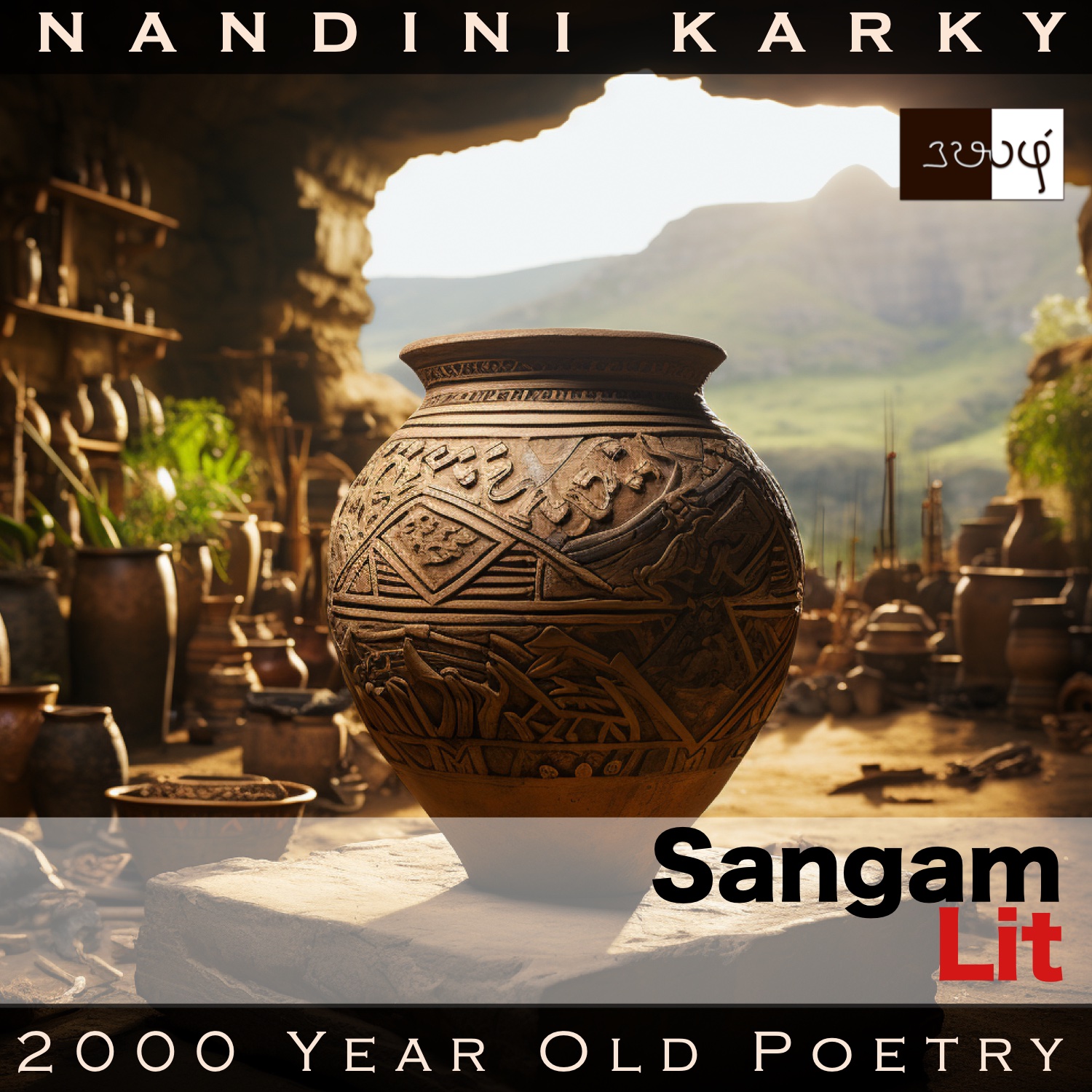Podcast: Play in new window | Download
Subscribe: Apple Podcasts | Spotify | Amazon Music | Android | iHeartRadio | TuneIn | RSS | More
In this episode, we listen to a request put forth to a potter, as portrayed in Sangam Literary work, Puranaanooru 256, penned by an anonymous poet. Set in the category of ‘Pothuviyal Thinai’ or ‘Common Themes’, the verse reveals the anguish in the heart of a bereaved woman.

கலம் செய் கோவே! கலம் செய் கோவே!
அச்சுடைச் சாகாட்டு ஆரம் பொருந்திய
சிறு வெண் பல்லி போல, தன்னொடு
சுரம் பல வந்த எமக்கும் அருளி,
வியல் மலர் அகன் பொழில் ஈமத் தாழி
அகலிதாக வனைமோ
நனந் தலை மூதூர்க் கலம் செய் கோவே!
Another in the series of songs rendered by a woman who has recently lost her husband. The poet’s words can be translated as follows:
“O potter who makes vessels! O potter who makes vessels! Akin to a little white lizard stuck on the spoke of a wheel with an axle, I traversed with him on drylands paths many. So as to grace me too, ensure that the burial urn you carve for him to be placed within the vast and spreading earth is spacious, O potter who makes vessels in this widespread ancient town!”
Time to delve into the nuances. Though we do not know who wrote this song, it’s the voice of a woman that we hear. She addresses a potter with much respect and then brings forth a simile to describe her situation. A cart is rolling along a long way and when we zoom closer, we find a lizard stuck to the spoke of the wheel. Won’t the lizard too travel all the distance that the cart does? Mentioning this hypothetical scenario, the lady says that’s how she has been travelling all her life through paths many, many with her husband. Now that he has passed away and the potter is about make a burial urn for his last rites, the woman requests that he make it big enough to hold both of them. She then concludes by declaring her belief that he could surely do something challenging like that, since he was a potter, who came from an ancient town, implying expertise.
Returning to the simile of the lizard on the wheel, the animal has no say on where to go but simply goes wherever the cart takes it and the woman seems to be extending that connection to follow her husband to this final destination that he has departed to. A verse that goes to establish the bond and love this woman felt for her beloved. When we step out of the intense emotions and see this verse at a distance, we find literary evidence for the making of burial urns and infer that this was an established profession that had gone on for ages in the ancient towns of the Sangam era. Archaeology confirms the truth of these lines with the unearthing of burial urns of many types in Sangam era sites, offering a window to life and love two thousand years ago.




Share your thoughts...